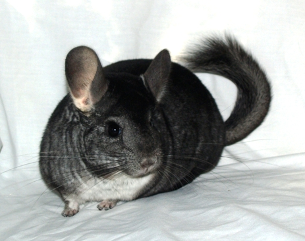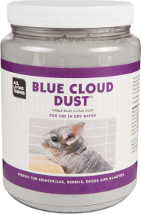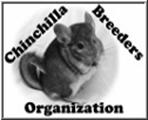Daily Care
The daily routine should include checking food, hay and water, wiping off shelves, and making sure that the chinchilla is doing well. It is best to free feed chinchillas so they should have a constant supply of food at all times. Pellets should be provided fresh every day. Unless a gravity feeder (also known as a J
 A standard Grey Chinchilla
A standard Grey Chinchilla
Weekly Care
Once a week, the litter in the bottom of the cage should be changed and the pan cleaned. Water bottles need to be scrubbed weekly. If the cage has fleece liners and a potty pan instead of bedding, the liners need to be changed at least once a week and washed. Adding a cup of vinegar to the wash water will help with any urine smell present in the liners.

Occasional Care
Depending on the humidity, chinchillas need to take dust baths at least once a week (for drier climates) to three times a week (for more humid areas). Another item that may require occasional care is a complete cleaning of the cage. This includes scrubbing, rinsing and drying the entire cage, wire, shelves, pan and accessories. Safe cleaning products for cleaning chinchilla cages include vinegar, hydrogen peroxide and bleach. Vinegar should be mixed with water (one part vinegar to one part water). Both vinegar and peroxide are totally safe and require no rinsing. Bleach should be mixed with water (one cup to a gallon of water) and needs to be thoroughly rinsed and allowed to dry. If wooden shelves or houses are particularly dirty, they can be cleaned with one of the methods already mentioned and then sanded once they are dry to remove any remaining stains.



 Site Last Updated on December 31, 1969 05:00 pm
Site Last Updated on December 31, 1969 05:00 pm